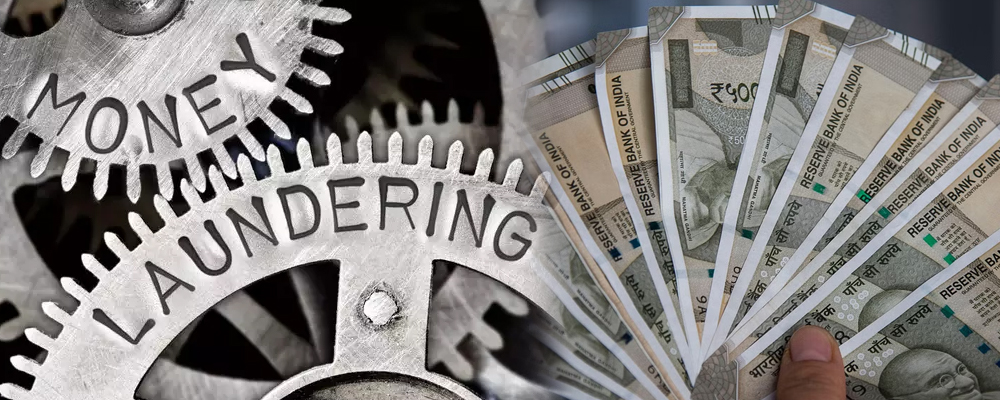Turning black money into white. Criminals tend to make a lot of money through money laundering. The processing of illegally earned criminal proceeds to hide their illicit sources.
These criminals care little about honesty and ethical values. Thus, they carry out illegal activities that allow them to reap huge profits without endangering their sources. Money laundering cases have increased tremendously in the past few years.
Activities such as illegal arms sales, prostitution, smuggling, human trafficking, organised crime, drug trafficking, embezzlement, bribery, and computer fraud can generate huge profits.
However, since the proceeds from this activity are illegal, criminals who make money from this activity should legalise these illegal games, which is what money laundering means.
Need A Legal Advice
The internet is not a lawyer and neither are you. Talk to a real lawyer about your legal issue

Example of money laundering
Although there are many methods of money laundering, the most popular method is to create a shell company, also known as a shell company. A “shell company” behaves like a real company, but in reality these companies do not exist in the real world and such companies do not have production. In fact, these paper companies exist only on paper, not in the real world.
But the cleaners show a large deal on the balance sheet of these paper companies. They take out loans in the name of these companies, receive tax exemptions from the government, do not file taxes, and amass huge amounts of black money through all sorts of fraudulent activities.
When investigators or regulators try to verify your financial statements, you confuse them by presenting false documents.
Punishments against money laundering in India.
Section 4 of the POCA provides for penalties for money laundering. A person guilty of money laundering is sentenced to up to three years in prison, which can be extended up to seven years, and fines are also imposed. Also, detention must be strict. However, it should be noted that if you are involved in an offence under the Narcotic Drugs and Psychotropic Substances Act 1985, you may face a harsh prison term that can be extended to 10 years instead of 7 years. Section 5 of APLA provides for seizure of money laundering assets.
This section provides that a director, co-director or deputy director has the power to seize money laundering property for a period of 180 days. only if the Commissioner, Co-Director, or Deputy Commissioner has reason to believe that such person owns the proceeds of a crime. This investment is made in the manner set forth in Schedule 2 to the Income Tax Act 1961. In the opinion of the authorities, the reasons must be stated in writing and such investment orders must be sealed. After such attachment, the complaint will be submitted to the judicial authority within 30 days.
When property is confiscated for money laundering offences, it becomes the property of the central government under Article 9 of the PMLA. Therefore, after forfeiture, all rights and ownership of the property pass to the government.
The crime of money laundering is the conversion of ill-gotten money into hundred bucks. The Money Laundering Prevention Act of 2002 was passed by the Legislature as comprehensive legislation to curb the growing crime of money laundering. Although the crime does not seem dangerous at first glance, it is nevertheless a serious crime that negatively affects the stability of the country and, most importantly, disrupts the economy. Money laundering not only threatens governments, it destroys international relations. This increases terrorist activity and poses a serious threat to the banking system.
Money laundering is a global problem and must be curbed through cooperation between countries.
However, there is no proper handling procedure for money laundering crimes under the current law. As the Supreme Court also cited, planning under the PMLA excludes the application of the provisions of the Penal Code. Although Section 65 of the PMLA provides for the use of CrPC as long as it does not conflict with the PMLA. Better implementation of the PMLA requires due process.
How can Lead India help?
Lead India has an expert panel of advocates to whom you can ask the free question, talk to lawyers or hire best of advocates in your respective city.





 Talk to a Lawyer
Talk to a Lawyer